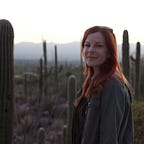City councilman, mayor differ on who approved 500-team soccer tournament on Phoenix athletic fields
Phoenix Mayor Kate Gallego’s Director of Communications, Jeanine L’Ecuyer, was clear in the message she wanted to get across in a phone interview Tuesday afternoon. “The mayor did not have a role” in approving the 2020 Desert Super Cup soccer tournament that blew through the Valley over Thanksgiving weekend, the spokeswoman said.
This statement from the mayor’s office directly refutes and contradicts claims Phoenix City Councilman Sal DiCiccio has been making on Twitter since late November.
According to a tweet DiCiccio posted on Nov. 25, “…the mayor and council completely approved this event bringing in thousands of people to our great city.” DiCiccio continued, “It was completely vetted by Phx political leaders.”
Mayor Gallego’s office says this is simply not true.
“DiCiccio is wrong,” L’Ecuyer said by phone on Dec. 1. The spokeswoman went on to explain the Phoenix City Council did not approve the event and the mayor’s office didn’t even know about it at the application stage. DiCiccio’s spokesman, Samuel Stone, commented via email Wednesday morning, “I can’t tell you what specific day the event was approved, requests go to the Parks Dept who gets sign off from the Mayor’s office. No Council approval was involved.”
But according to L’Ecuyer, the mayor never signed off on the event. She said Gallego’s office first became aware of its approval on Nov. 22, and they immediately began working to implement stricter safety requirements on “a week’s notice.” Everything related to approving the Desert Super Cup soccer tournament went through City of Phoenix Parks and Recreation Department, L’Ecuyer said, and she felt approving this event was “a mistake.”
(I reached out to Phoenix Parks and Rec for this story on Wednesday and am awaiting comment.)
And who signed off matters. Because of this approval, thousands of young athletes, parents, siblings, and other spectators came from neighboring states such as California and Colorado to use athletic fields currently more accessible than the ones back at home.
This represents a single event and, for better or worse, it’s already happened. But I was made aware there is a long list of applicants for other proposed tournaments and large gatherings on Phoenix athletic fields over the upcoming winter months.
As far as why Gallego didn’t try to stop the most recent event, L’Ecuyer explained, “The mayor does not have the same executive powers the governor does.” Though we are under a state of emergency, which broadens mayoral powers somewhat, the office believes it would be seen as “playing cute with the law” to use these powers to try to shut down events that don’t fall under its normal jurisdiction and authority.
L’Ecuyer correctly pointed out that Desert Super Cup games were played not only on athletic fields in Phoenix, such as Reach 11 Sports Complex, but on several fields in nearby Scottsdale and Mesa, too.
Had Mayor Gallego banned the event from facilities within Phoenix city limits, it was still going to take place at other fields across Maricopa County. And even if the Phoenix City Council instructs Parks and Rec to reject all applications for events that would attract groups of 50 or more until our numbers are down, these groups can just move to the next town over if rules there remain lax.
(If only there was somebody who could implement blanket measures across the state to eliminate inconsistency and loopholes. Someone who could, say, ban gatherings of more than 10 people anywhere in Arizona, and who actually encouraged meaningful enforcement… this person could institute other useful measures, like maybe a mask mandate, as opposed to leaving it up to individual mayors and business owners to figure out! So many possibilities, if only we had someone who could do these things. But we don’t. We have Doug Ducey.)
A city council meeting is scheduled for Dec. 2, and the fate of these future tournaments is item #29 on a packed agenda.
L’Ecuyer anticipated “robust” discussion over the matter and laid out two possible paths forward staffers have drafted for consideration by the Council.
Option A, she said, would leave everything as it currently is, with athletic fields open and teams applying for exemptions to exceed gathering limits, but with strict safety guidelines in place. This means things like enforcement of mask usage at all times except for players during game play, but would still seem to actively encourage teams to continue coming from out-of-state during a viral pandemic — sometimes thousands at a time as they did for the Desert Super Cup — to participate in tournament play not allowed in their own regions.
L’Ecuyer described Option B as a sharp contrast, a “cancel everything” approach, and pointed out the Council can choose Option A, Option B, or any number of other ideas they come up with on their own.
The day before Thanksgiving, Nov. 25, the state saw 4,672 new confirmed coronavirus cases. On Nov. 27, the first day of the tournament, Arizona reported 3,066 new infections.
On the holiday itself, thousands of out-of-towners boarded flights or drove hundreds of miles, pouring into Maricopa County to gather at a time when the entire country had been asked to refrain from gathering. (I interviewed two of them for this series examining the Desert Super Cup. Stay tuned, it’ll be up soon.)
Then, on Dec. 1, Arizona set a new record for a single-day increase of 10,322 cases (likely reflecting a holiday weekend backlog rather than a suddenly even more significant outbreak).
What the Phoenix City Council decides on Wednesday will help set the course for the entire state over the winter, and what we need is a swift course correction. It’s true that teams may just go elsewhere if Phoenix bans tournaments, but what the biggest city in the state chooses to do here will send a message — one that could influence better public health far beyond city limits, or threaten it.
